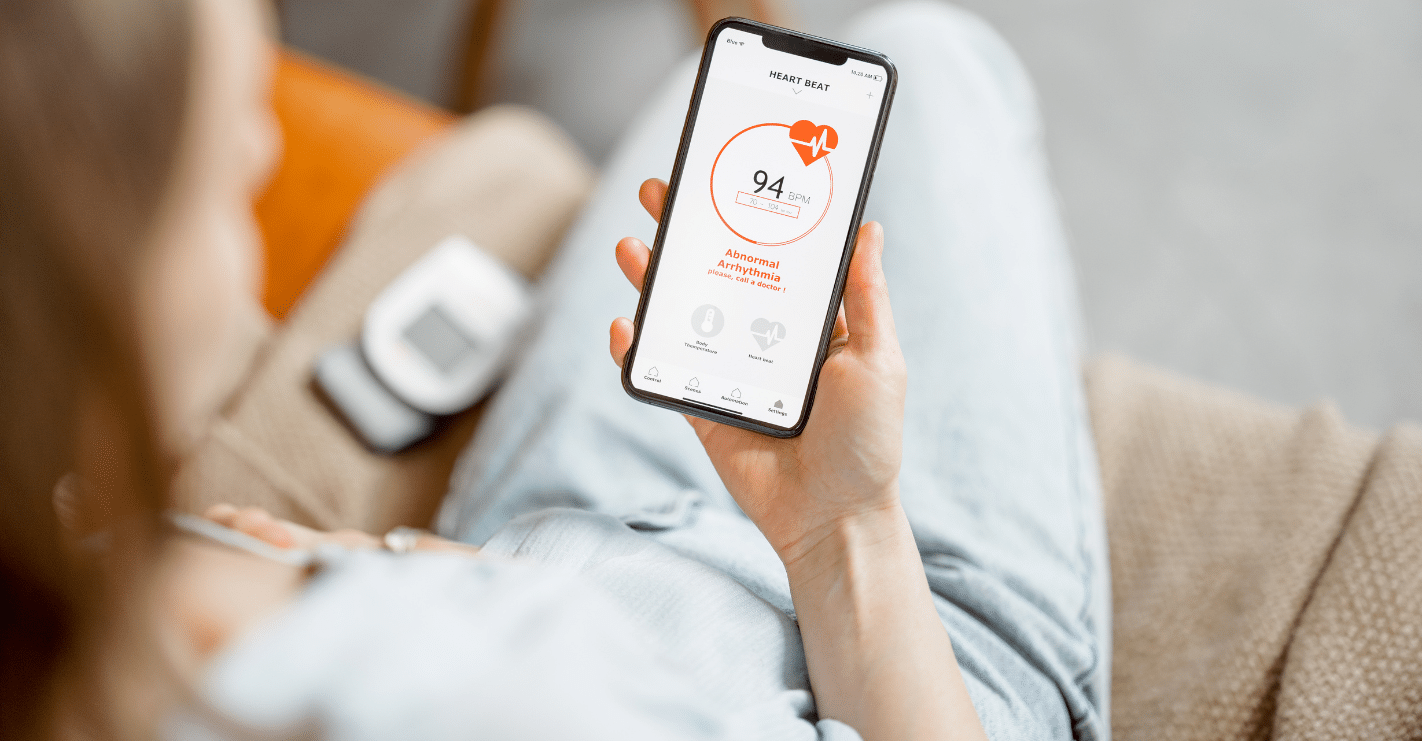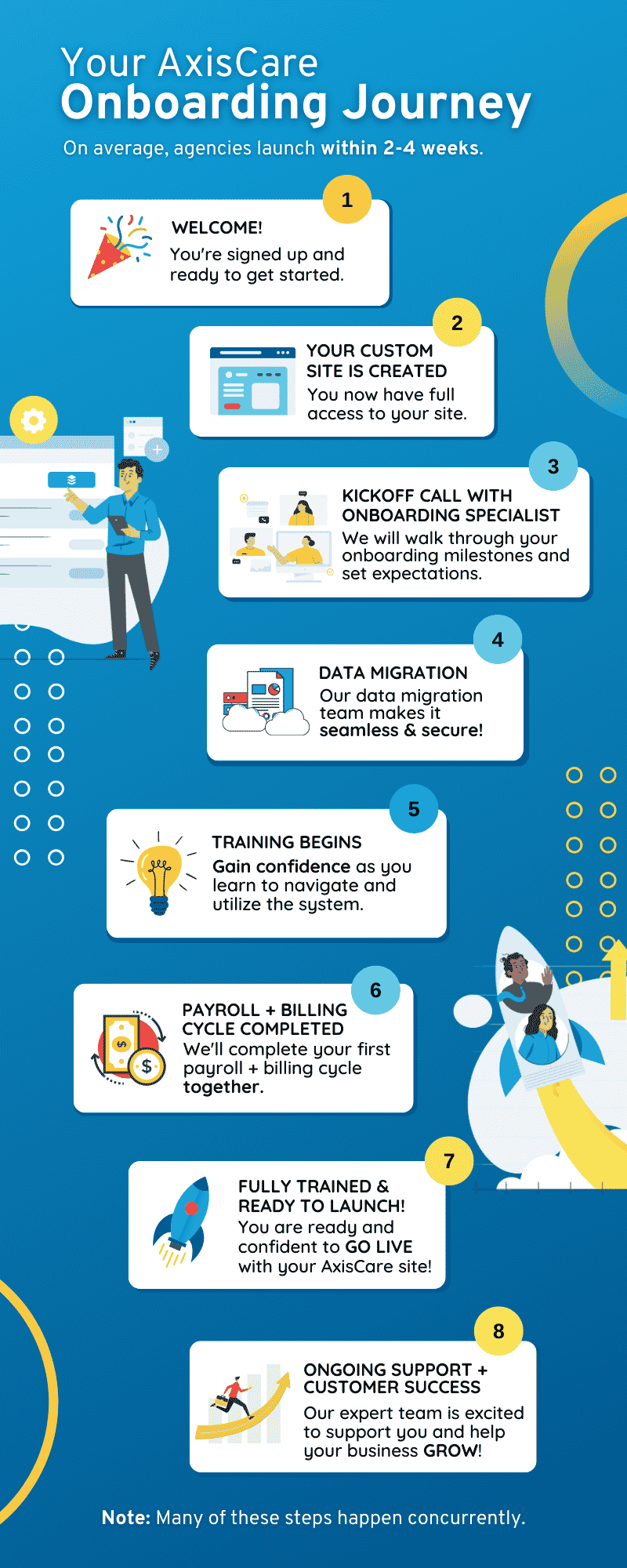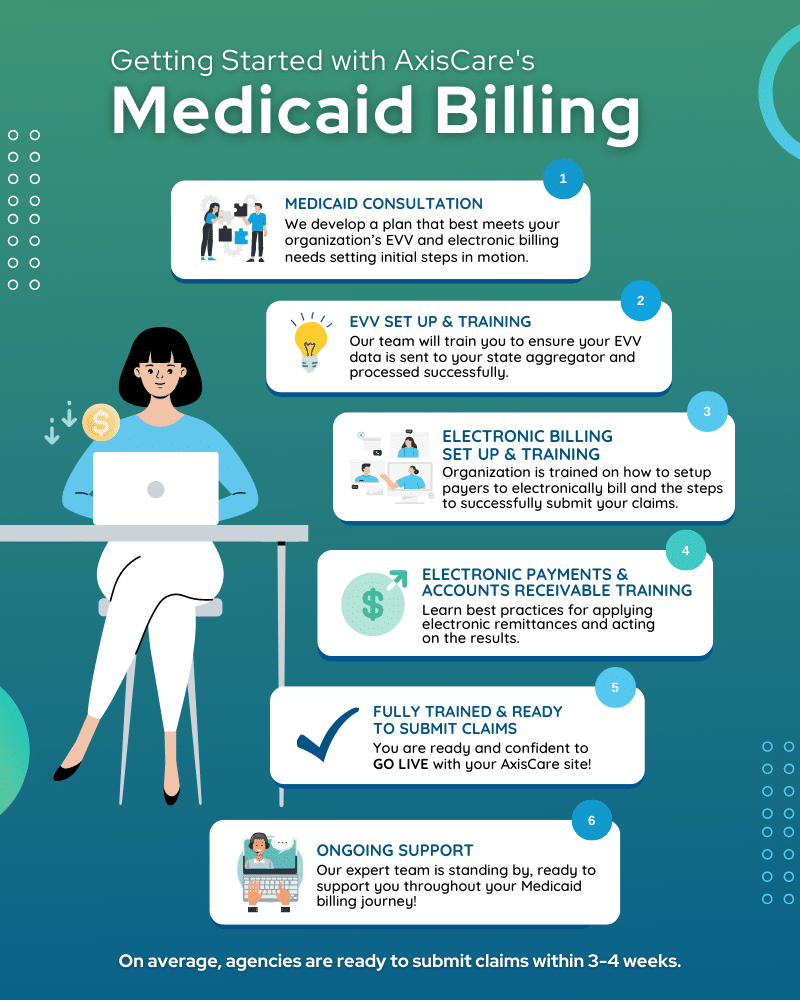Over the last century, the medical advancements we’ve achieved have been nothing short of astronomical. Dialysis, the defibrillator, CT scans, bionic limbs: all of these incredible innovations were brought to market in the last hundred years. And AI healthcare is the next frontier.
You’ve probably seen AI-generated art and buzz about ChatGPT shared far and wide across the internet – but behind the scenes, artificial intelligence has already made ripples throughout the healthcare space.
Artificial Intelligence (AI) in Healthcare
If you’re picturing a robot in a lab coat checking your vital signs, that’s not quite where we’re headed (for now). Currently, the most promising applications of AI in healthcare include creating links between disparate medical data, improving patient outcomes, boosting caregiver productivity, and increasing healthcare agency performance across the board.
How AI is Transforming Healthcare
A medical professional’s most important job is to make timely and accurate diagnoses. With the help of AI for healthcare, they may very well be able to boost the speed and precision of their work.
Machine learning algorithms, for example, can process huge amounts of data in the blink of an eye. When presented with a significant volume of medical documentation, these algorithms can rapidly cross-reference information to identify patterns and predict medical outcomes. It might take humans weeks or months to analyze this same data – and even then, they might miss certain trends or takeaways. Healthcare AI does away with human error and crunches information in record time.
For now, AI for healthcare is mostly being applied in a hospital setting. However, we predict that its adoption will become more widespread as the technology evolves. Imagine a world where it could be used beyond a clinical setting, to further customize at-home care solutions, or monitor patients remotely using wearable technology?
AI Applications in Healthcare
Healthcare AI is reshaping research, diagnosis, treatment, and monitoring in so many ways. Here are the main applications we’re seeing today, with more to come down the road.
Electronic Health Records (EHR)
As mentioned above, AI can help healthcare professionals make sense of the vast amounts of data contained within EHRs by identifying patterns and insights that may be missed by human analysis.
Medical Imaging Analysis
In addition to identifying patterns within large sets of clinical documents, AI can also be trained on medical imagery – think X-rays, scans, and ultrasounds. Analyzing these images can similarly lead to more accurate diagnoses and personalized treatment plans.
Genomic Analysis
Genomic data is yet another type of information that can be analyzed by AI. In this case, it’s used to identify genetic markers that may be associated with specific diseases or conditions, leading to more personalized treatments and improved patient outcomes.
Customized Care Plans
What if your entire medical history could be combed in a second, then compared against countless other patients’ information? AI can analyze patient data, such as records and genetic information, to provide personalized treatment recommendations based on individual characteristics and medical history. It can also predict potential treatment responses.
Drug Developments
Drug development is one of the most tightly monitored and regulated industries in the world, and for good reason! Significant research and testing are required before a new medication can hit the market – and with the help of AI, we can accelerate the discovery and approval process. By analyzing biomedical data, it’s possible to identify potential drug candidates and predict efficacy even faster than before.
Remote Monitoring and Telehealth
Whether a patient is in hospital or at home, AI-powered devices and applications can remotely monitor their health status, collect data, and provide real-time alerts to healthcare providers, like medication reminders and vital sign updates.
Growth of AI in Healthcare
All of the applications mentioned above are just the beginning for healthcare AI. As these technologies evolve, we expect to see countless new avenues for AI to improve patient care, accelerate research, enhance reporting with business intelligence, and increase positive outcomes.
We also hope to see healthcare for AI expand from clinical applications to at-home use: this development is greatly needed, given the world’s aging population and a strong preference for receiving long-term care in the comfort of home.
Machine Learning (ML)
Machine learning algorithms, such as neural networks and deep learning, crunch huge amounts of data to gradually learn about a given topic. The more information is fed into the ML engine, the more accurate its outputs will become. This is great news for the healthcare industry, as AI healthcare diagnoses, treatments, and predictions will only get better over time.
Natural Language Processing (NLP)
Natural Language Processing techniques enable computers to understand and interpret human language. It can quickly extract information from medical records and assist in clinical decision-making, or even be used to power chatbots that can answer patient questions. The latter application has particularly important potential in remote and home care settings, where medical professionals are not on the premises.
Robotics and Radiology
AI-powered robots assist surgeons in performing complex procedures with precision and accuracy. In a not so distant future, there may be AI-enabled devices and platforms in every operating room, ready to assist with and accelerate procedures of all kinds. AI algorithms can also analyze medical images, helping radiologists detect abnormalities and assist in diagnosis.
Benefits of AI in Healthcare and Home Care
The entire healthcare system is powered by all kinds of different software platforms and technologies. Some are designed to treat patients in clinical settings, and others are meant to facilitate home care. No matter the situation, AI is poised to transform the industry as we know it – and for the better.
Improved Care Quality
AI can improve care quality by providing more accurate diagnoses, personalized treatments, and a more effective way to manage medical records. In a home care context, AI can pinpoint opportunities for increased efficiency and service – for example, a caregiver can use a mobile app to optimize their travel routes – to ensure staff arrive on-time and deliver the necessary care when it matters.
Better Patient Outcomes
AI can help healthcare providers detect early signs of diseases, provide timely interventions, and track patients’ health data over time, leading to better patient outcomes and improved quality of life. It can even be used to monitor patients remotely, opening the door to advanced home care solutions that keep medical professionals more connected than ever to their outpatients’ situations.
Improved Access to Care
AI can improve access to care, especially in remote and underserved areas, by enabling providers to reach more patients through telemedicine services powered by AI.
Early Disease Detection and Prevention
By leveraging AI technologies, healthcare professionals can make more informed decisions, save time, reduce costs, and improve overall medical records management.
The Transformative Role of AI in Healthcare
AI’s ability to push the healthcare industry forward is limitless. It can harness vast datasets to forecast disease trends, allowing for early intervention. It can tailor treatment plans to individual patient profiles, optimizing outcomes. Finally, AI facilitates continuous monitoring and management of chronic diseases, offering real-time insights for better patient care.
At AxisCare, we have always been driven by a passion for innovation, and we continually push the boundaries to provide you with forward-thinking solutions that will help you better care for seniors. With our unwavering commitment to innovation, we are dedicated to staying at the forefront of AI advancements and incorporating its potential into our software. We believe that AI is not just a futuristic concept but a practical tool that will change how home care agencies operate, ensuring better outcomes for seniors.
AI-Driven Healthcare Solutions with AxisCare
Scheduling and managing home care services is no simple task. That’s why AxisCare is already incorporating cutting-edge technology to make the process more seamless than ever. Request a demo to learn more about what our platform can do.











